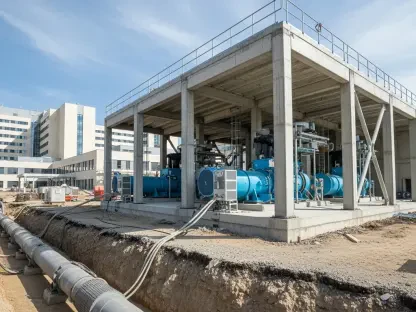In Western Australia, a troubling wave of substandard rental properties is sweeping through the housing market, leaving new tenants grappling with unsafe and poorly maintained homes, as reports of dilapidated conditions—from leaking roofs to pest infestations—have skyrocketed. This paints a grim picture of landlord neglect in a region already strained by low rental vacancy rates. Consumer Protection has flagged a dramatic increase in complaints, with 77 cases recorded over the past 12 months compared to just 21 in the previous period, signaling a deepening crisis. This surge reflects not only a failure to uphold basic housing standards but also a growing exploitation of desperate renters in a competitive market. As tenants face health hazards and uninhabitable spaces from day one, the urgency to address this systemic issue has never been clearer, prompting a closer examination of legal protections and accountability measures.
Rising Complaints and Market Pressures
Tenant Grievances Highlight Systemic Failures
Across Western Australia, tenants are increasingly vocal about the deplorable state of rental properties handed over to them, often in direct violation of tenancy laws. Common issues include persistent plumbing failures, rampant mold growth, malfunctioning air-conditioning systems, and broken appliances that render daily living a challenge. More disturbingly, some landlords have been caught advertising non-habitable structures—such as sheds or garages—as legitimate living spaces, with one notable case involving a garage misrepresented as a two-bedroom unit despite being deemed unfit by local authorities. Consumer Protection Commissioner Trish Blake has condemned these practices, emphasizing that the tight rental market does not excuse landlords from their legal obligation to provide safe, clean, and functional homes. The sharp rise in complaints underscores a broader trend of neglect, where market pressures seem to embolden some property owners to prioritize profit over tenant well-being, leaving renters vulnerable to unresolved hazards from the outset of their leases.
Market Dynamics Fuel Landlord Neglect
The low rental vacancy rates in Western Australia have created an environment where some landlords feel they can sidestep maintenance responsibilities without consequence, knowing demand far outstrips supply. This competitive market dynamic often leaves tenants with little choice but to accept substandard conditions, fearing they might lose out on housing altogether if they push back. Reports indicate that many renters move into properties with pre-existing damage or health risks, only to face delays or outright refusal when requesting repairs. This exploitation is particularly evident in cases where misleading advertising draws tenants into agreements under false pretenses, such as properties lacking basic amenities or structural safety. The imbalance of power in these situations highlights a critical need for stronger oversight, as the current market conditions appear to exacerbate neglect rather than encourage accountability. Without intervention, this trend risks normalizing subpar housing standards across the region, further endangering tenant rights and safety.
Legal Protections and Tenant Empowerment
Strengthened Laws Offer New Recourse
Recent updates to the Residential Tenancies Act, effective since May of last year, have introduced significant protections for tenants in Western Australia, aiming to curb landlord neglect and ensure safer living conditions. These reforms explicitly shield renters from retaliatory actions, such as sudden rent increases or lease terminations, when they request essential maintenance or report substandard issues. Additionally, tenants now have the right to seek rent reductions through the Magistrates Court if unresolved problems diminish the usability of their rental property. This legal framework serves as a vital tool for those facing uninhabitable conditions, empowering them to demand accountability without fear of repercussions. Consumer Protection has reiterated that any attempt by landlords or agents to evade responsibilities through deceptive contract terms or false advertising is strictly unlawful, reinforcing the message that tenant rights must be upheld regardless of market pressures.
Encouraging Action Through Reporting Channels
To combat the growing issue of substandard rentals, Consumer Protection is actively urging tenants to report poor conditions through accessible channels, including their website, email, or a dedicated hotline. This push for action is designed to increase visibility of the problem and ensure that violations are addressed promptly by the appropriate authorities. Tenants are encouraged to document issues thoroughly and assert their rights under the updated tenancy laws, which provide a clear pathway for recourse. Beyond individual complaints, this collective reporting helps highlight systemic failures in the rental market, paving the way for broader reforms and stricter enforcement of housing standards. By fostering a culture of transparency, these efforts aim to hold negligent landlords accountable and prevent future renters from inheriting the same hazards. The emphasis on tenant engagement signals a shift toward a more balanced rental landscape, where legal protections and active reporting work hand in hand to safeguard vulnerable residents from exploitation.









